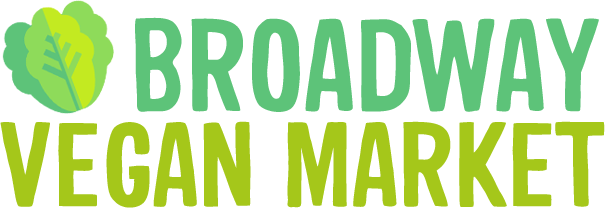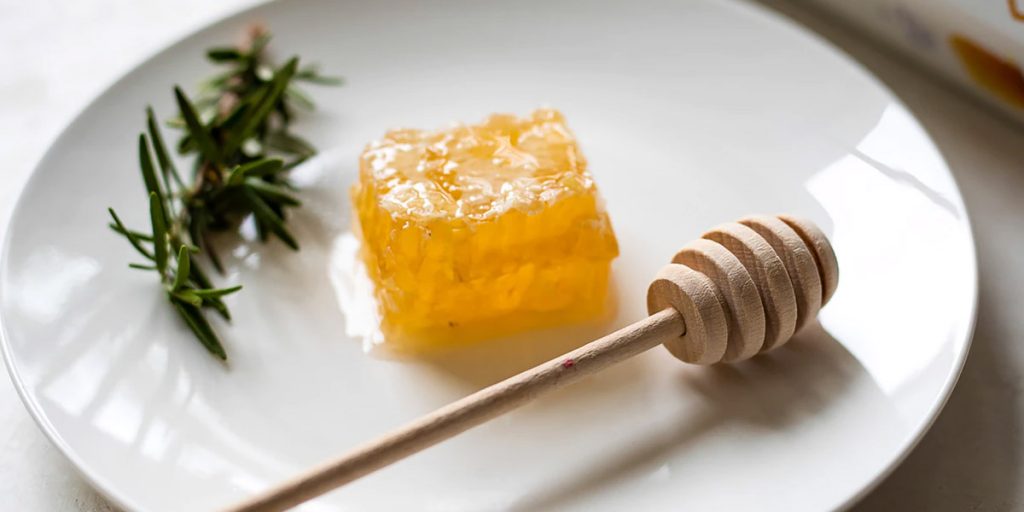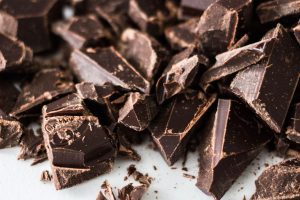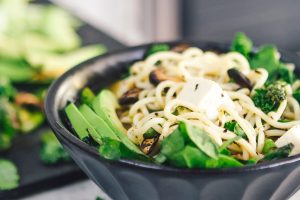Veganism is a lifestyle where you choose to refrain from the use of animal-derived products from your diet. As per the statistics released by the Vegan Society, Australia ranked the first for being the most popular vegan nation in 2018 followed by the USA, which saw a 600% rise in its vegan population since 2014.
Do all vegans avoid honey?
No, there are a few vegans who consume honey because according to them not using honey in your dietary needs does not fall under the primary principles of being a vegan. Leading an almost vegan lifestyle, people who consume honey call themselves as “bee-gan.” They even eat other insect-derived products, which they consider as vegans, such as gelatine, carmine, shellac, and confectioner’s glaze.
So then, is honey vegan?
Although a controversial topic among the vegans, the answer points in the direction of honey not being vegan. Every year around 56 billion animals die, including cows, pigs, fish, and bees due to factory farming. Therefore, collecting honey by rearing bees, which is equivalent to exploiting them, does not fall under the category of being vegan.
Reasons Why Vegans Do Not Eat Honey
A vegan diet mostly consists of only plant-based products and derivatives. Hence, any food derived from any living creature, be it animals, fishes, or insects, are classified as non-vegan. Here are some of the reasons why vegans prefer not to eat honey or use any bee-derived products.
- Bees, although insects are a part of the animal kingdom. Production of honey and other products such as royal jelly, bee pollen, honeycomb, beeswax, etc.… leads to the exploitation of bees, which vegans are not in favor of and therefore, honey made by the bees is not vegan.
- Overall, there is no difference between any factory farming be it poultry farming or bee rearing; each of these practices include the mistreatment of animals/insects. Further, the population of the different bee species is declining because of such commercial bee rearing practices.
- Moreover, apiculture results in poor bee health. If beekeepers find a colony of bees to be infected, they would burn the hive rather than treating the bees to prevent the infection from spreading. It is because burning the hive is a more economical option than treating the bees.
- Lastly, bees, like any other insects, have an essential role to play in our environment. They help in the transfer of pollen grains, needed for natural plant reproduction. Hence, a decline in the bee population would also mean a drop in crop production and plant diversity.
Hence, deciding to give up honey or not lies in your stand towards the process of honey extraction. It is only when people truly understand how bees are treated for the production of honey; they avoid it’s use.
Bee Exploitation Explained
If you weren’t aware, it is time you learn that honey is the primary food source for bees. Even if you left a portion of the honey for the bees to feed on and took the rest of it, it would still be wrong to take what is not rightfully yours. Hence, extracting honey from bees is a form of exploitation for the below reasons.
- Beekeepers keep the bees in confinement to procure honey, thereby depriving bees of their food.
- Instead, bee farmers feed the bees with less nutritional food sources such as sugar and corn syrup that is rich in fructose, which are unhealthy options for the bees. These alternatives do not provide any nutritional benefits, rather starve the bees during the winters.
- Moreover, apiculturists practice selective breeding of bees to boost honey production that results in a smaller gene pool. This practice is one of the main reasons why there are fewer bee species left in the world and many dying because of illnesses associated with weaker genes and nutritional imbalances.
- Adding to their misery, beekeepers even clip off the wings of the Queen Bee to prevent her from flying away with the drone bee and the worker bees. Sometimes, the Queen has even inseminated artificially.
- It doesn’t stop here. Some apiarists destroy the beehives during the winters, killing all the bees in it, and start fresh in the spring when rearing bees is cheaper and more manageable.
If all of these do not amount to cruelty, then what does?
Conclusion
Thus, it is a united stand against the exploitation of bees through apiculture, which deliberately affects the health of bees through unethical farming practices that makes honey not vegan. However, if you are vegan, then you can choose other substitutes for honey to satisfy your sweet tooth such as maple syrup, molasses, agave nectar, coconut nectar, date sugar, beet sugar, barley malt syrup, and brown rice syrup, all of which are plant-derivatives, which make them 100 per cent vegan.





